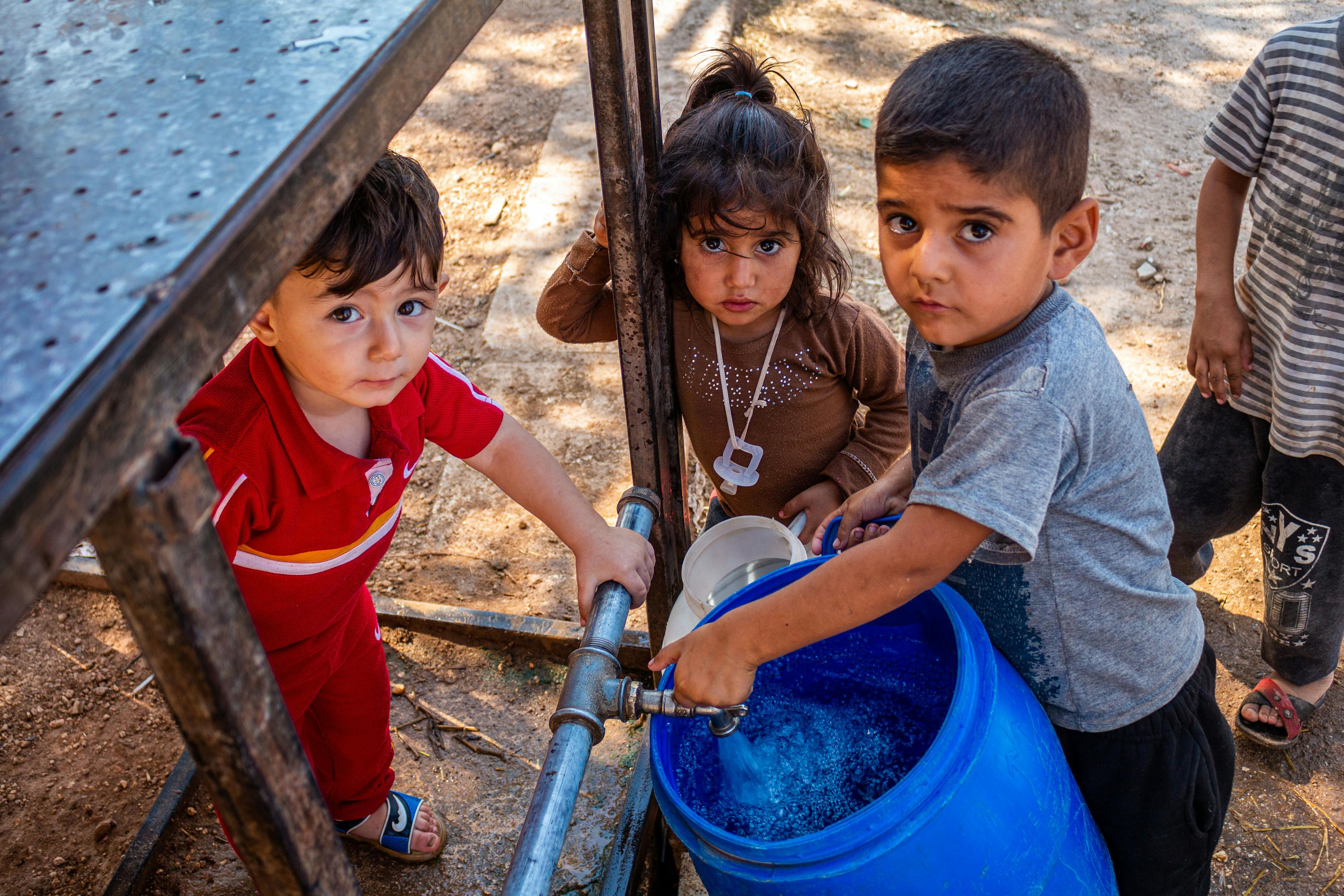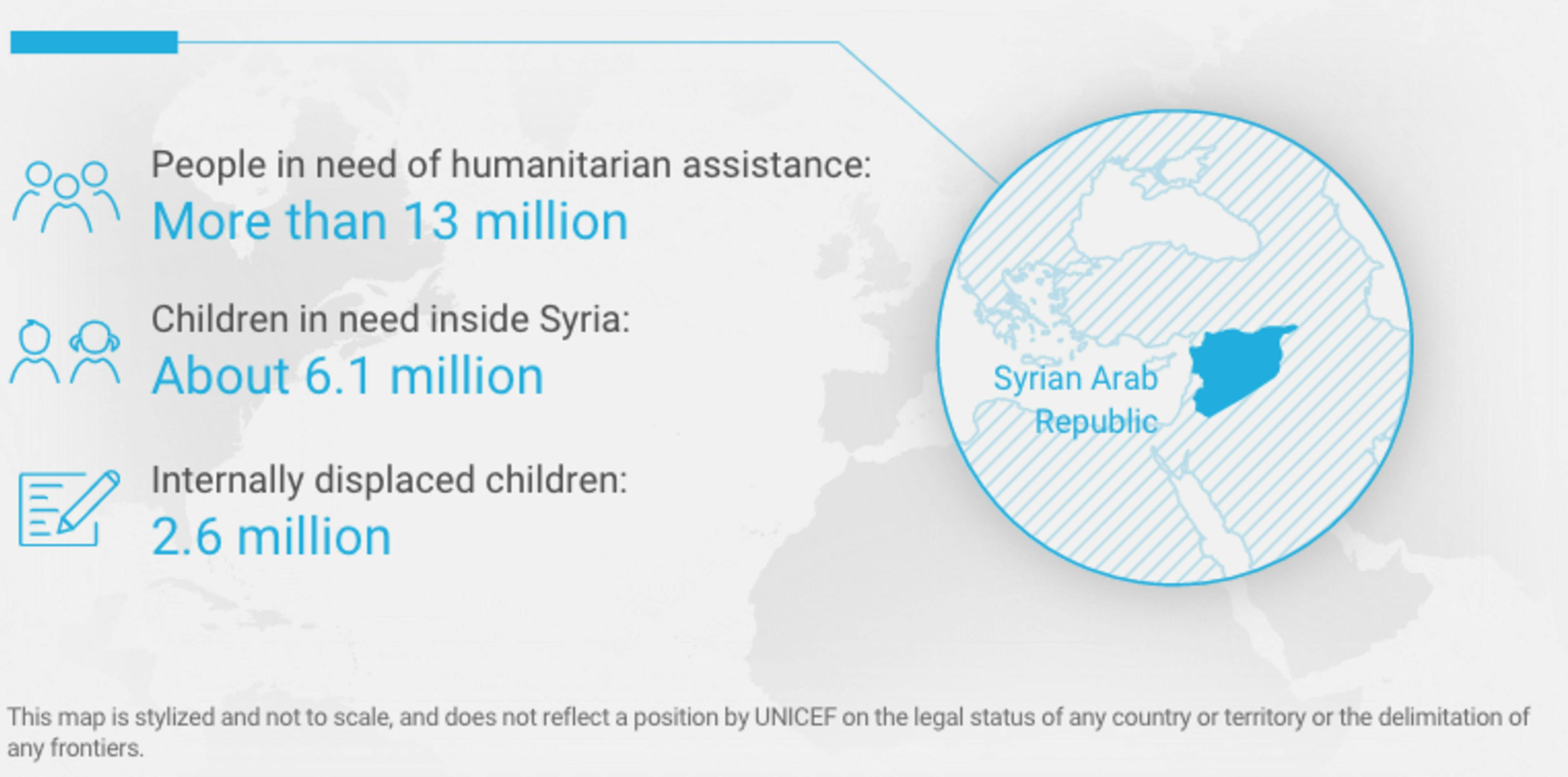
UNI397829
Syrian crisis
Home
Stories
Syrian crisis
A grim milestone for Syria’s children
After 10 years of conflict, the situation for many children across Syria has never been worse.
Children and their rights are undermined on a daily basis – through continuing violence and grave rights violations, rising food insecurity and a tumbling economy. Nearly 90 per cent of children are in need of humanitarian assistance, a 20 per cent increase in the past year alone.
Yet, despite this incredible hardship, children and young people across Syria persevere. They are striving for peace and trying to build a better life for themselves and their communities.

UN0398428
Crisis in Syria: What you need to know
What is happening in the Syrian Arab Republic?
Ten years of humanitarian crisis and hostilities has had a profound impact on the situation of children in Syria, across the region and beyond. Every Syrian child has been impacted by the violence, displacement, severed family ties and lack of access to vital services caused by massive physical devastation.
The situation in northern Syria is particularly alarming. In the northwest, millions of children remain displaced, with many families having fled violence multiple times, some as many as seven times, in search of safety.
Families are also paying the price for an economic crisis and dangerous rise in food insecurity, with many struggling to afford to put food on the table, while an estimated half a million children are chronically malnourished. The COVID-19 pandemic has only deepened this crisis.
How have children been affected?
The Syrian crisis remains first and foremost a protection crisis. Grave violations of children’s rights – recruitment, abductions, killing and maiming continue unabated.
Hyperinflation is having a devastating impact on families, with negative coping mechanisms on the rise. Parents are eating less so they can feed their children, sending them to work instead of to school, and girls and boys face the risk of early or forced marriage.
The education system, meanwhile, is overstretched, underfunded, and fragmented. By early 2021, one in three schools inside Syria could no longer be used because they were destroyed, damaged or are being used for military purposes. Nearly 2.45 million children in Syria are out of school, while those children who are able to attend classes often learn in overcrowded classrooms, and in buildings with insufficient water and sanitation facilities, electricity, heating or ventilation.
What is UNICEF doing to help children in the Syrian crisis?
Millions of Syrian children require some form of humanitarian assistance. UNICEF and partners are on the ground in Syria and across the region working to protect children, to help them cope with the impact of conflict and to resume their childhoods. This includes improving access to education and psychosocial support services to help children and caregivers to recover from trauma and to restore a sense of normalcy, as well as delivering critical humanitarian assistance in hard-to-reach areas.
Working with partners, UNICEF continues to deliver assistance including hygiene kits, safe drinking water, and screening and treatment of malnutrition. To help prevent the spread of COVID-19, UNICEF and partners have been sharing prevention and risk awareness messages and materials. Read more about UNICEF’s work and results in the country.
